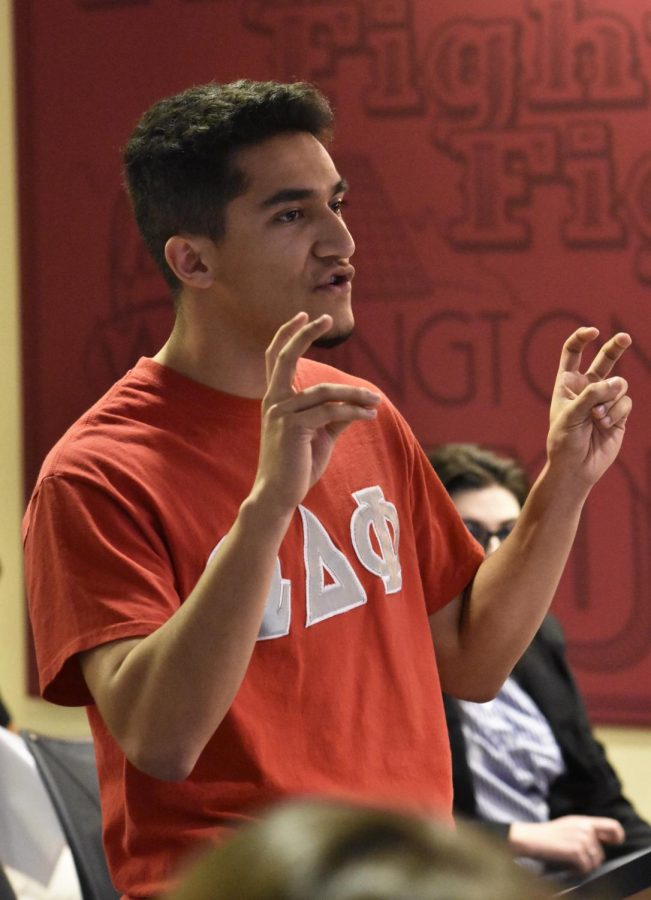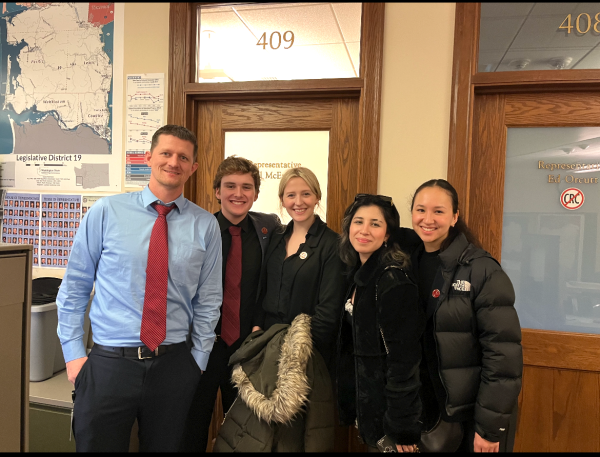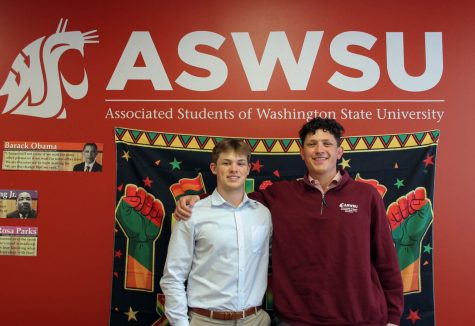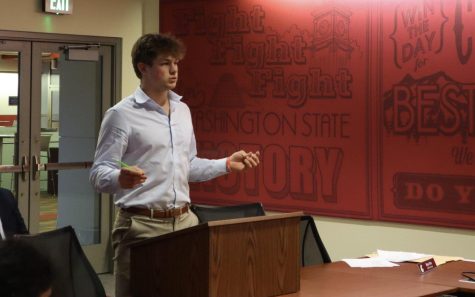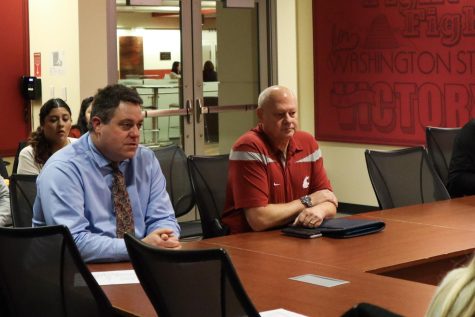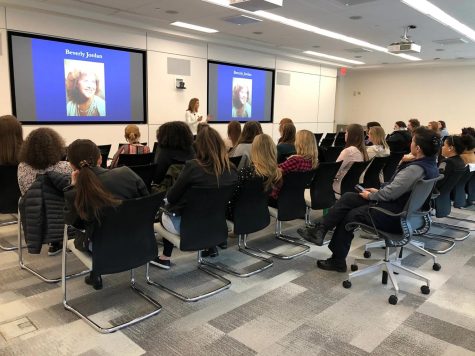ASWSU Senate supports multicultural plaza plan
Senators vote unanimously in favor of resolution after debate over plaza’s purpose
BONNIE JAMES | The Daily Evergreen
Ricky Luna, president of Omega Delta Phi, advocates to rename the library plaza to “Multicultural Greek Plaza” because they do not have a space on campus.
March 8, 2018
ASWSU senators passed a resolution in support of naming the plaza on top of Terrell Library the “Multicultural Greek Plaza” at its weekly meeting.
The resolution urges WSU administration to dedicate the plaza to the multicultural Greek community at WSU to help bring attention to those organizations and the students of color in them.
The resolution cites the WSU Strategic Plan’s references to a diverse university community, including students, staff and faculty from underrepresented groups. It also cites the multicultural Greek community’s goal of recruiting and retaining students of color by providing safe and inclusive spaces, as well as problems they face with visibility and historical exclusion from the Greek community.
Several students from the multicultural Greek community gave public testimony in favor of the resolution.
Ricky Luna, president of Omega Delta Phi Fraternity, Inc., said multicultural Greeks do a lot of work around the community, but they are not visible.
“We truly want to be able to showcase this with this new space that we would obtain,” he said.
Diana Soria, the United Greek Council vice president of recruitment, said they currently do not have a space on campus, but deserve one. She said the plaza would make incoming students aware of the community.
“Having this … would show students at Alive! that we’re visible,” Soria said.
Leslie Monje, a United Greek Association delegate from Sigma Lambda Gamma, said the naming is not separatist rhetoric or special treatment, but inclusiveness.
“We’re asking that the brown and black students in our organizations are not erased,” she said.
Carson College of Business Senator Jesus Hernandez, one of the resolution’s authors, said naming the plaza would help multicultural Greek recruitment, which would help with retention of students of color.
“Essentially,” he said, “there is a large community of students that feel they are being left out.”
All Campus Senator James Dalton said he has struggled with the resolution since he first heard about it. He said multicultural students already have the newly built Elson S. Floyd Cultural Center to bring attention to their community.
“Part of what I struggled with,” he said, “is we already have something on campus that celebrates this.”
Dalton said he does not believe they should designate a spot in the middle of campus for multicultural Greeks.
“I just haven’t been sold on this is something that has to be done,” he said.
Hernandez said the Cultural Center is dedicated to diversity on campus, but the plaza would be named for the multicultural Greeks and the work they do to serve marginalized people.
“The difference between the two is immense,” he said.
All Campus Senator A’Jenae Hardwell said she thinks Dalton’s view is close-minded, and calling the space the Multicultural Greek Plaza does not restrict white people from using it.
“What I got from it was that, ‘Oh, you already have something, why do you need something else?’ ” Hardwell said.
Arts and Sciences Senator Jacob Lizarraga said multicultural students are marginalized and deserve to be recognized.
“To say they don’t deserve to be put in the center goes against what I believe WSU stands for,” he said.
Dalton said he felt personally attacked by other senators, adding that he did not want them to think his points meant he was against any underrepresented group on campus.
“If you have that in your mind,” he said, “then take that out right now.”
Dalton and the rest of the Senate approved the resolution on its final vote.
Also at the meeting, senators voted to raise the student transit fee by 5 percent. In spring 2017, WSU students voted to raise the transit fee by $5 per semester and give ASWSU and GPSA the ability to approve future increases of up to 5 percent.
Transportation Services Director John Shaheen said that without the increase, they would end up running a deficit because of increasing costs, such as driver contracts that require a wage increase every year.
“Unless they get that 5 percent, they’re going to run a deficit,” Shaheen said. “We can do that for a while, but it’s not sustainable.”
The increase would raise student fees by $1.63 per semester and $3.26 per year. The increase passed through the Senate with a unanimous vote, but is still pending in the GPSA Senate before it is finalized.


